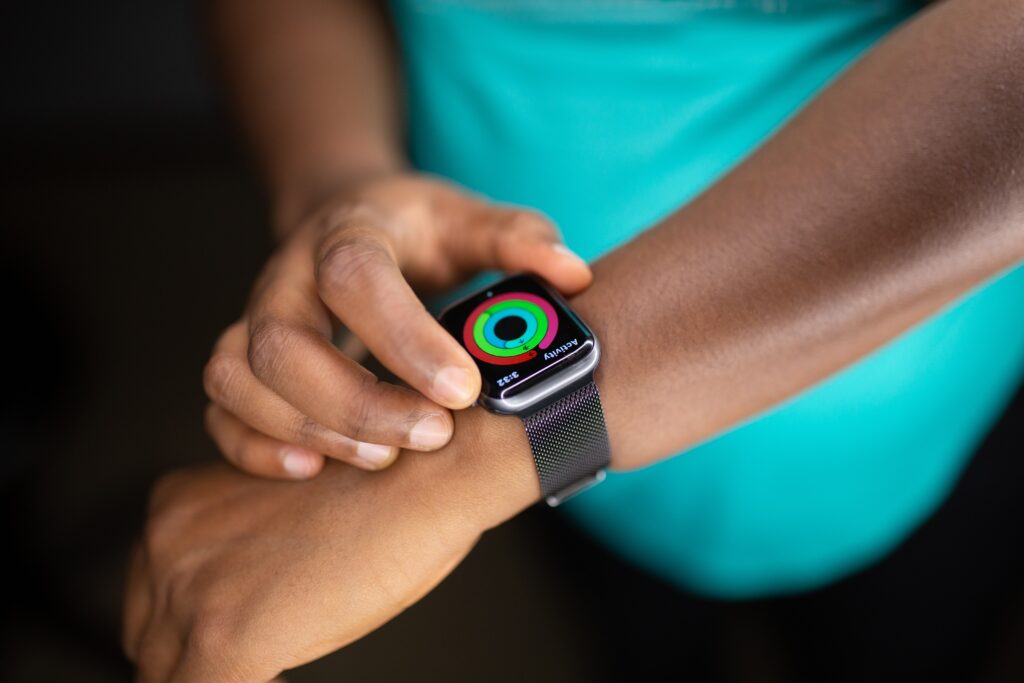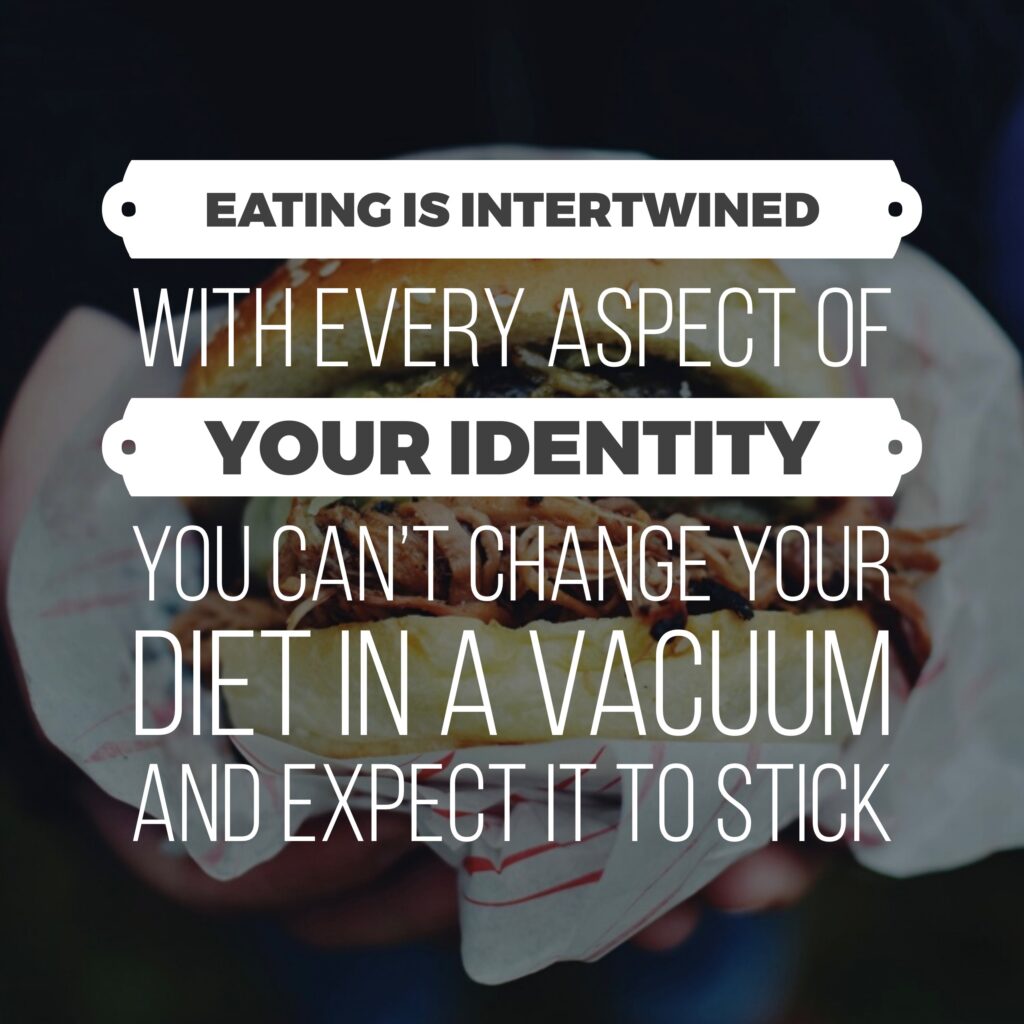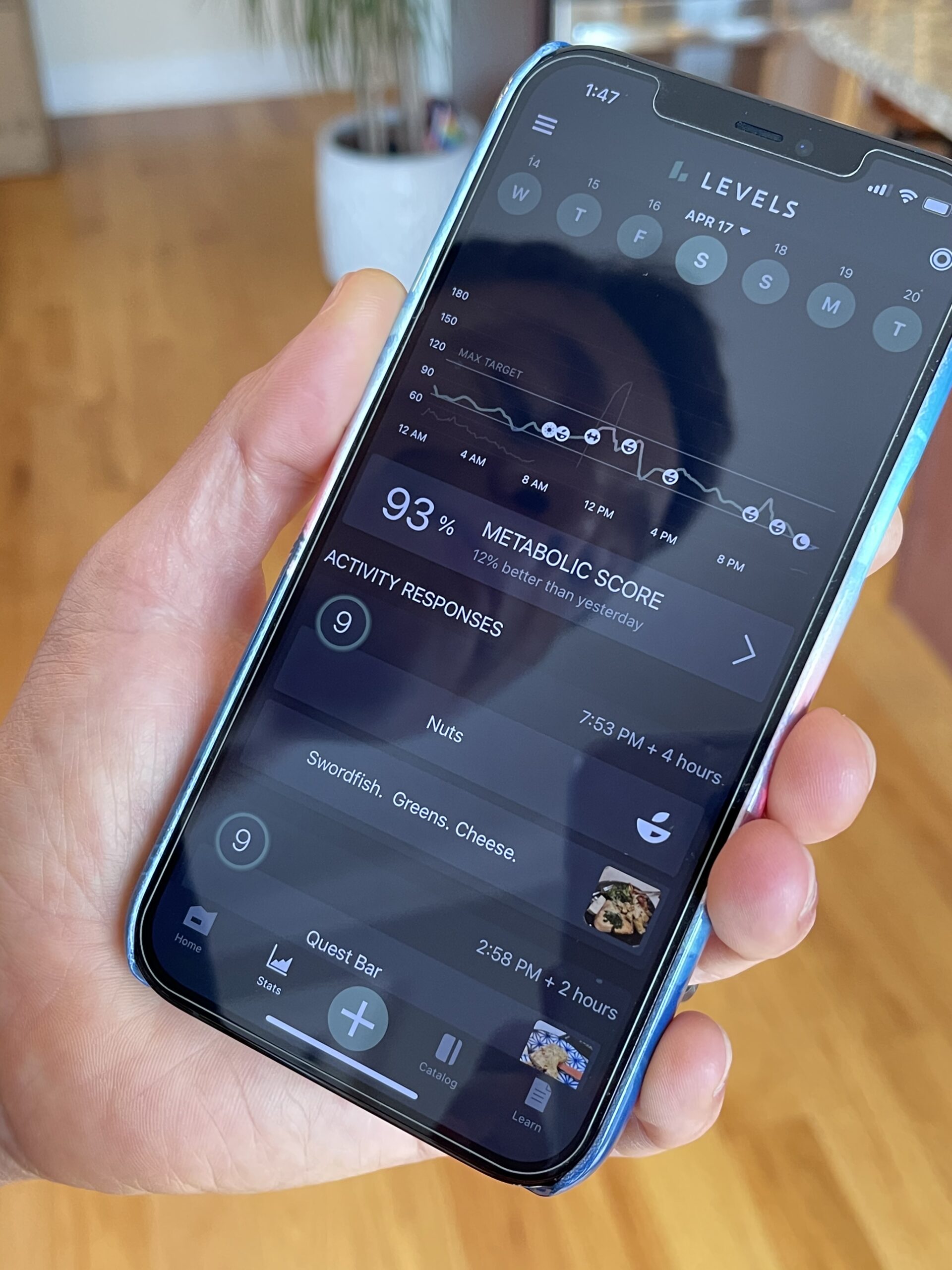Table of Contents
Part 1 – What is Levels Health: Hardware & Software
Part 2 – Pro’s, Con’s, & Big Takeaways
Part 3 – Levels’ Health Claim & Who Is It Good For
Part 4 – Health Data Tracking & Wearable Devices
Part 5 – Does Levels Health Live Up to the Hype
Can the Levels Health continuous glucose monitor improve your metabolism, help you lose weight, and get you strong and lean? Is this tiny device stuck to your arm for a month worth the price and hassle?
Before you jump on the Levels bandwagon, read parts 1-3 for a complete no-nonsense review of the Levels Health philosophy, app, and journey through their 28-day metabolic fitness program. In part 4, you will learn why health data tracking is important but not sufficient for changing your body and behavior.
The Difficulty of Turning Health Data Into New Behaviors


The Levels Health app makes no attempt to hide the complexities of true behavior change. On their blog, they list the four components that they believe lead to sustainable changes in your health decisions:
- Closed-loop systems
- Body-awareness and interoception
- Accountability
- Personal control
I wholeheartedly agree with all of these. While the Levels Health data tracking can help you attribute how you feel to a decision you’ve made, it takes additional support to build accountability and body-awareness that they talk about.
Therefore, if you want to make the most of your Levels Health metabolic fitness program, it helps to work with a health coach. I don’t say this as self-promotion – though the argument is pretty good 🙂 I say this because I don’t want anyone to be fooled into thinking that a continuous blood glucose monitor alone will dramatically change their life.
It takes training to learn why you may feel tired, energized, angry, unmotivated, depressed, or distracted. It takes a lot of mindfulness to be able to notice physical sensations without judging them or making them wrong. Plus, you need time to discuss and unpack these factors together with your other lifestyle choices. Even with the incredibly powerful health data tracking can give you, after the 28 days are over, you still need to confront how your environment and mindset are driving your decisions.
Healthy behaviors don’t exist in a vacuum. Blood sugar monitoring can add a significant piece to your self-awareness toolkit. But how you use that tool and how all pieces fit together requires a broader vision of what truly creates health and wellbeing.


How Does Levels Health Compare to Other Wearable Fitness Trackers
With so many wearable devices on the market, it can be confusing to know what to buy and what to track. Should you get a Whoop band, an Oura ring, or an Apple Watch? Should you measure your sleep, your steps, or your heart rate?
Costs and fashion aside, the answer is probably all of the above. Each metric will give you one important piece of the health and wellness puzzle. No single wearable on the market captures everything.
What makes Levels Health unique is that it is looking at a “closed-loop system,” which is a big step up in sophistication from simply gathering data on your steps or heart rate. With these other metrics, the input/output relationship is very clear. If you walk more, your activity bar will go up. If you start moving faster, your heart rate will increase. There’s not a whole lot of surprises.
But with your blood sugar, there is not a direct relationship between input and output. There are feedback loops that regulate how what comes in (i.e. the food you eat.) affects what goes out (i.e. your blood sugar). With Levels Health continuous glucose monitoring technology, you’re looking at your body’s ability to self-regulate — how well does your body keep your blood sugar within a favorable range. This is a much more complex, and, in my opinion, far more interesting inquiry than how many steps you took.
I’m not saying you shouldn’t track your steps or sleep, but doing so really only tells you about baselines and compliance:
- Did you take your walk today?
- Did you elevate your heart rate?
- Did you get a full night’s sleep?
If you’re below your goal, maybe it’s time to get moving (assuming your goal is actually appropriate for your body today). Tracking these data points can be helpful motivators to do what you know you should do. But Levels Health helps you discover if what you’re already doing is actually helpful or not.
Continue to Part 5 – Does Levels Health Live Up to the Hype…
To leveling up your mind-body,
~ Jeff Siegel
Download the Free Healthy Habit Checklist & Workbook
Learn more about how 1:1 coaching can your body and life in the shape you want and deserve.




1 Comment